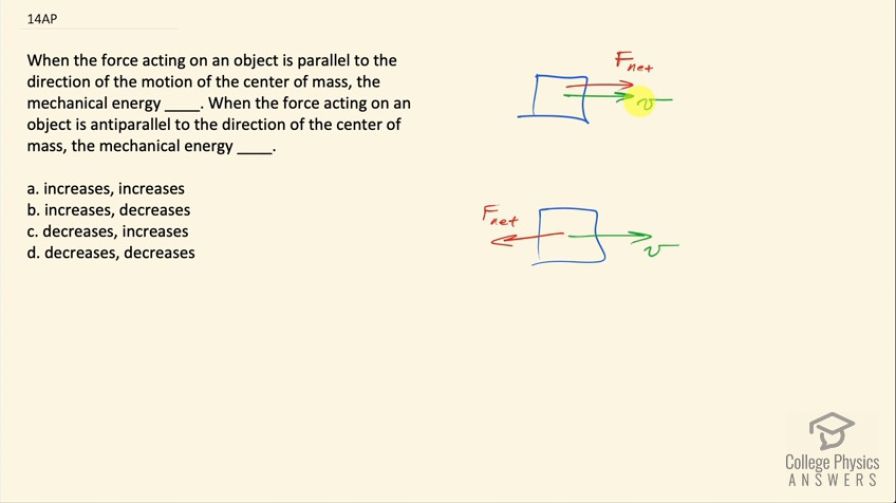Question
When the force acting on an object is parallel to the direction of the motion of the center of mass, the mechanical energy ____. When the force acting on an object is antiparallel to the direction of the center of mass, the mechanical energy ____.
- increases, increases
- increases, decreases
- decreases, increases
- decreases, decreases
Final Answer
(b)
Solution video
OpenStax College Physics for AP® Courses, Chapter 7, Problem 14 (Test Prep for AP® Courses)

vote with a rating of
votes with an average rating of
.
Video Transcript
This is College Physics Answers with Shaun Dychko. This picture shows an object moving to the right and there's a net force on it that is parallel to that velocity; this net force will cause an acceleration in the same direction as the velocity and so the speed will increase and therefore the mechanical energy will increase. Since the mechanical energy is kinetic energy here and it is equal to one-half mv squared so as the speed increases, the kinetic energy increases in proportion to the square of that speed. So that narrows our options down to (b) and (d). In the second scenario where the net force is in the opposite direction to the velocity or anti-parallel, in other words, there's going to be an acceleration that is reducing the speed and by reducing the speed, their kinetic energy is going to reduce or decrease and so the answer to the question is (b).